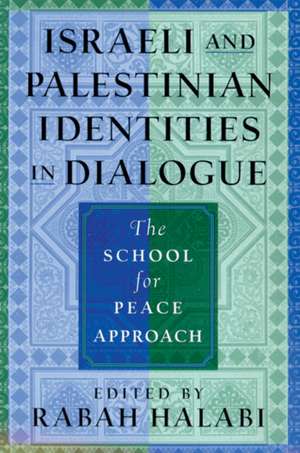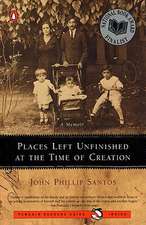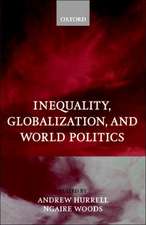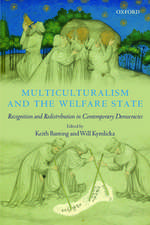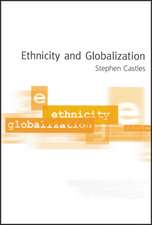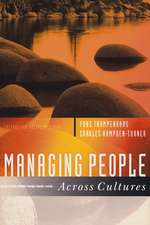Israeli and Palestinian Identities in Dialogue: The School for Peace Approach
Editat de Rabah Halabi Contribuţii de Professor Arie Nadler, Professor Ramzi Suleiman, Professor Nava Sonnenschein, Professor Ariella Friedman, Professor Michal Zak, Professor Wafa'a Zriek-Srour, Professor Ahmad Hijazi, Professor Gabriel Horencyzken Limba Engleză Paperback – 23 apr 2004
Israeli Palestinians make up about 20 percent of Israeli citizens and, for the most part, live separate lives from their Jewish neighbors—lives fraught with political, social, and economic divisions. Attempts to initiate interactions between Palestinians and Jews outside official frameworks have often dissolved under political and economic pressures.
One lasting effort began when the School for Peace was established in 1976 in Neve Shalom/Wahat al-Salam, a joint model village set up in 1972 by a group of Jewish and Palestinian Israelis. Since its inception, the School for Peace has conducted hundreds of encounter activities to help create a more authentic and egalitarian dialogue between the Palestinian minority and Jewish majority.
This volume is the product of the insight and experiences of both Arabs and Jews at the School for Peace over the last two decades. Essays address topics such as strategies for working with young people, development of effective learning environments for conflict resolution, and language as a bridge and as an obstacle. It is the first book to provide a model for dialogue between Palestinians and Jews that has been used successfully in other ethnic and national conflicts, and should be required reading for everyone interested in Jewish-Palestinian relations.
One lasting effort began when the School for Peace was established in 1976 in Neve Shalom/Wahat al-Salam, a joint model village set up in 1972 by a group of Jewish and Palestinian Israelis. Since its inception, the School for Peace has conducted hundreds of encounter activities to help create a more authentic and egalitarian dialogue between the Palestinian minority and Jewish majority.
This volume is the product of the insight and experiences of both Arabs and Jews at the School for Peace over the last two decades. Essays address topics such as strategies for working with young people, development of effective learning environments for conflict resolution, and language as a bridge and as an obstacle. It is the first book to provide a model for dialogue between Palestinians and Jews that has been used successfully in other ethnic and national conflicts, and should be required reading for everyone interested in Jewish-Palestinian relations.
Preț: 313.73 lei
Nou
Puncte Express: 471
Preț estimativ în valută:
60.03€ • 62.85$ • 49.67£
60.03€ • 62.85$ • 49.67£
Carte tipărită la comandă
Livrare economică 07-21 aprilie
Preluare comenzi: 021 569.72.76
Specificații
ISBN-13: 9780813534152
ISBN-10: 0813534151
Pagini: 214
Ilustrații: 1
Dimensiuni: 152 x 229 x 30 mm
Greutate: 0.34 kg
Ediția:None
Editura: Rutgers University Press
Colecția Rutgers University Press
ISBN-10: 0813534151
Pagini: 214
Ilustrații: 1
Dimensiuni: 152 x 229 x 30 mm
Greutate: 0.34 kg
Ediția:None
Editura: Rutgers University Press
Colecția Rutgers University Press
Notă biografică
RABAH HALABI is the head of the School for Peace Research Center at Neve Shalom/Wahat al Salam in Israel, and a lecturer in the education department at the Hebrew University.
Cuprins
Intergroup conflict and its reduction: a social-psychological perspective / Arie Nadler
Jewish-Palestinian relations in Israel: the planned encounter as a microcosm / Ramzi Suleiman
Awareness, identity, and reality: the school for peace approach / Rabah Halabi and Nava Sonnenschein
Liberate the oppressed and their oppressors: encounters between university students / Raba Halabi, Nava Sonnenschein, and Ariellla Friedman
Reconstructing identity through the encounter with the other: the facilitators' training course / Rabah Halabi
The courage to face a complex reality: encounters for youth / Michal Zak, Rqabah Halabi, and Wafa'a Zriek-Srour
Language as a bridge and an obstacle / Rabah Halabi and Michal Zak
Cofacilitation: a symmetrical dialogue in an asymmetrical reality / Michal Zak and Rabah Halabi
"Home group": the uninational framework / Nava Sonnenschein and Ahmad Hijazi
Identity processes in intergroup encounters / Gabriel Horenczyk
Epilogue: Toward a humane and equal relationship / Rabah Halabi
Jewish-Palestinian relations in Israel: the planned encounter as a microcosm / Ramzi Suleiman
Awareness, identity, and reality: the school for peace approach / Rabah Halabi and Nava Sonnenschein
Liberate the oppressed and their oppressors: encounters between university students / Raba Halabi, Nava Sonnenschein, and Ariellla Friedman
Reconstructing identity through the encounter with the other: the facilitators' training course / Rabah Halabi
The courage to face a complex reality: encounters for youth / Michal Zak, Rqabah Halabi, and Wafa'a Zriek-Srour
Language as a bridge and an obstacle / Rabah Halabi and Michal Zak
Cofacilitation: a symmetrical dialogue in an asymmetrical reality / Michal Zak and Rabah Halabi
"Home group": the uninational framework / Nava Sonnenschein and Ahmad Hijazi
Identity processes in intergroup encounters / Gabriel Horenczyk
Epilogue: Toward a humane and equal relationship / Rabah Halabi
Recenzii
This book contains very important insights into Israeli Arab attitudes towards citizenship in Israel. . . . The two groups need to negotiate a new social and political contract and this book offers critical guidance in this urgent process.
This volume provides a significant contribution to the field of peace studies and conflict resolution. It captures the unique work of Neve Shalom/Wahat al Salam on identity dialogue and power relations. . . . highly recommended reading.
Descriere
This volume is the product of the insight and experiences of both Arabs and Jews at the School for Peace over the last two decades. Essays address topics such as strategies for working with young people, development of effective learning environments for conflict resolution, and language as a bridge and as an obstacle. It is the first book to provide a model for dialogue between Palestinians and Jews that has been used successfully in other ethnic and national conflicts, and should be required reading for everyone interested in Jewish-Palestinian relations.
